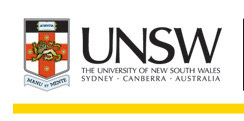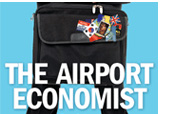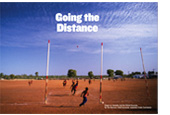Australian business goes for gold behind the scenes at London 2012
By Tim Harcourt*
There’s been lots of hand wringing about how many medals Australia has been winning at the London Olympics – at one stage we were behind New Zealand and are still behind Kazakhstan – but it’s looking much better now. ‘Super’ Sally Pearson in the hurdles, ‘Go’ Anna Meares in cycling (sorry Austen Tayshus) and the sailors are making sure we now have a respectable tally. And in any case if we did a “coaches” medal tally – taking into account all the Australian coaches who have coached Chinese swimmers and British athletes of various sports – we’d have a pretty good haul.
But for all the medal talk on the track, in the pool and in the velodrome, there are some real ‘quiet achievers’ at the Olympic Games too that are worth winners and examples of Australian excellence abroad.
Take for example, the Olympic flame itself. A South Australian company, FCT Flames was responsible for the amazing cauldron highlighted at the opening and closing ceremonies and the 204 small flames that made up the spectacular Olympic flame.
The creative capabilities of Australian architects are again on display, with architects like PTW (headed by ‘rock star architect’ John Bilman of Beijing Watercube fame) and Populous having built and designed many of the key facilities.
And there’s more. The polymer pitches for the Hockey (‘Smurf Turf’) have been produced by Advanced Polymer Technology Australasia, a Melbourne based manufacturer, the equestrian starting gates are manufactured by Adelaide Hills exporter Steriline racing, the rowing oars by Taree company, Croker Oars, and even the stadiums and venues are being cleaned up by Spotless (Cleanaway). Security is key to this Olympics given the fears of terrorist attacks and Australian business Intelligent Risks have played a key role in keeping the games safe.
And of course, the Olympic village itself was built by Lend Lease and the Olympic Precinct is dominated Stratford Westfield. Frank Lowy’s vision has been to lead a strong legacy in the form of a new town centre and shopping complex to help a depressed part of East London into the future after the carnival is over.
Many of these companies are veterans of Sydney Olympics in 2000, where many small and medium sized enterprises (SMEs) got their start, Beijing in 2008, and no doubt will play an important role in Rio in four years time. In fact I was having a look at the data, and of the 56 companies that worked initially on the Sydney Olympics in 2000, 43 have been at London 2012, and a further 17 have commenced work on Rio so far. And then there’s the FIFA World Cup, Rugby World Cup, Commonwealth Games, Asian Games, Pan American games to contribute to as well.
By chance, Kym Fullgrabe, Australia’s Senior Trade Commissioner in London will take up his new position in Sao Paulo after the games are over. So there’s nice continuity there for Australian exporters who want to go to Rio can take the London Bridge. So bring on Brazil with Rio 2016 (as well as the FIFA World Cup in 2014 in a unique ‘Samba double header’) and let’s see Australian business excellence match a strong sporting performance in four years time.
*Tim Harcourt is the J.W.Nevile Fellow in Economics at the Australian School of Business, UNSW and author of The Airport Economist: www.theairporteconomist.com
He visited London in his new role as Adviser – International Engagement to the Premier of South Australia, Hon Jay Weatherill, MP.
He has won 0 gold medals, 0 silver and 0 bronze at Olympic level.
Tim Harcourt is a professional economist specialising in international trade and labour economic issues in the Asia Pacific region and in the emerging economies. Tim's passion is Australia's engagement with the global economy and the challenges and opportunities it offers business and the Australian community as a whole.
Tim has broad experience in public policy and in communicating international economic issues widely in the community. He has held senior roles in both the public sector and private sector in Australia and internationally and in the community and education sectors. In Australia he has worked for the Reserve Bank of Australia, Fair Work Australia, the Australian Council of Trade Unions (ACTU and the Australian Trade Commission (Austrade).













No Comments so far ↓
Comments are closed.